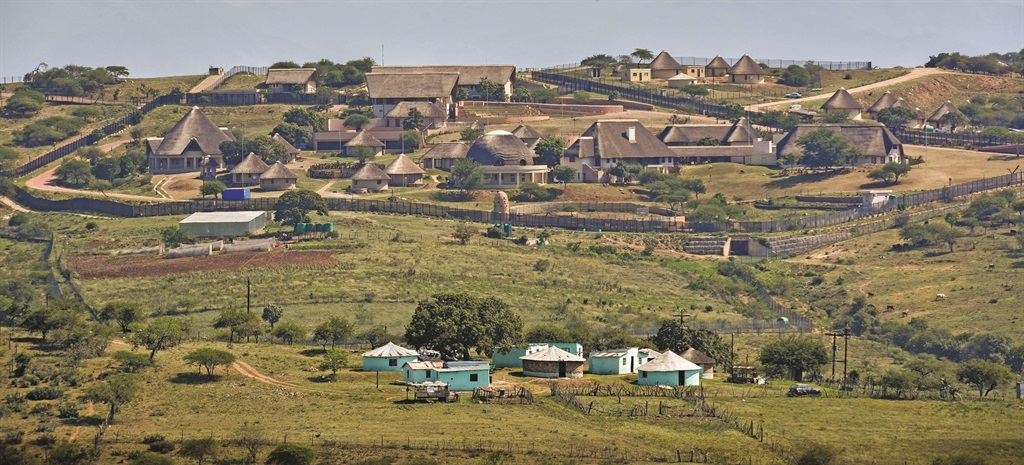
Now that the Constitutional Court has delivered its landmark judgment on the president and Nkandla, and the politicians have had their say, it is time to examine the ethics of the matter comprehensively.
Law is not the same as ethics, because legality as such is no guarantee that something is ethically sound. Slavery was once legal, but none of us thinks it was ethical.
This article is a contribution to the urgently needed conversation about the ethics of the Nkandla affair. It does so with ubuntu as its foundation. Ubuntu is the principle that “a person is a person only through other persons”. It is valid because we are a social species of interdependent individuals who can only thrive in communities that practise the ethical values that ubuntu requires: consistent honesty; justice; responsibility; active concern for those in need; and never harming others.
We must note the key features of the Nkandla affair. The first one is seeing the bigger picture than just five or six additions such as the fire pool. A demand for the whole truth is an ethical priority and it means establishing the full cost of each part of the Nkandla property – how much the president himself paid or legitimately received as a gift from others, which itself raises the question of whether such donations were declared to the SA Revenue Service and all taxes due were paid; what was paid for with public funds; and who else paid anything.
The president and his family are entitled to protection, so essential, correctly costed security upgrades are justified. But we need all the facts about any of these upgrades, independently determined, and we need the full list of non-security upgrades. The press earlier published a long list that added up the cost of the non-security features, which came to R52.9 million. The whole lot must be independently established and made known.
And while insisting on the full truth, people of conscience will also insist that any lies or deception by anybody involved in the Nkandla affair be revealed and dealt with.
Whatever the details of the money spent at Nkandla, media reports already indicate that a large part has come from public money in a country where there are millions of people living in dire poverty, and that only part of that expenditure is essential for verified security purposes.
This is an ethical disgrace. Integrity demands to know whether there has been any cover-up, deception, withholding of the truth or outright dishonesty perpetrated by anybody involved in the Nkandla affair. If so, integrity demands appropriate punishment, not just a slap on the wrist.
Justice means that it cannot be fair for public money that is urgently needed for the poor to be spent on additions at Nkandla with no valid security purpose, let alone on luxuries; nor can it be right for such funds to be used to pay for any inflated costs of any kind that are independently verified. In the same way, the ubuntu values of active concern for those in need and a refusal to harm anybody are also violated.
It is here that ethics goes much further than law. The Constitutional Court ruled that President Jacob Zuma must repay a “reasonable portion” of the cost of those non-security expenses. But ethics asks why only those costs should be repaid. Why not all? How can it possibly be ethical for those in need to pay for any part, let alone the bigger part, of luxuries like a cattle kraal and the rest? Indeed, how could any of us ethically own a property acquired like this? Moral responsibility means that the president is accountable for his actions and omissions. He is responsible for everything that happened at his private property, even if he didn’t keep a close eye on what was happening with taxpayers’ money, just as he is responsible for knowing what the Constitution requires of him.
At the same time, serious moral responsibility also attaches to Cabinet ministers, officials and others who are known to have been involved in unnecessary and excessive expenditure at Nkandla. Here, too, ethics must go much further than law if it is to be fair and thorough, as it must. It cannot be fair that such people only be “reprimanded”. Serious wrongdoing like this must have serious consequences.
The Constitutional Court delivered a landmark legal ruling with important moral aspects to it, but it is not the court’s job to act as the nation’s conscience. That is our duty as honourable citizens. Let us not fail our duty here. Let us demand an ethical solution to unethical actions.
Prozesky writes in his personal capacity as an applied ethics trainer under the banner of compass ethics. He is emeritus professor at the University of KwaZulu-Natal and professor extraordinaire of the University of the Free State
TALK TO US
How should the ministers, officials and others involved in the Nkandla scandal be reprimanded?
SMS us on 35697 using the keyword ETHICS and tell us what you think. Please include your name and province. SMSes cost R1.50




 Publications
Publications
 Partners
Partners








